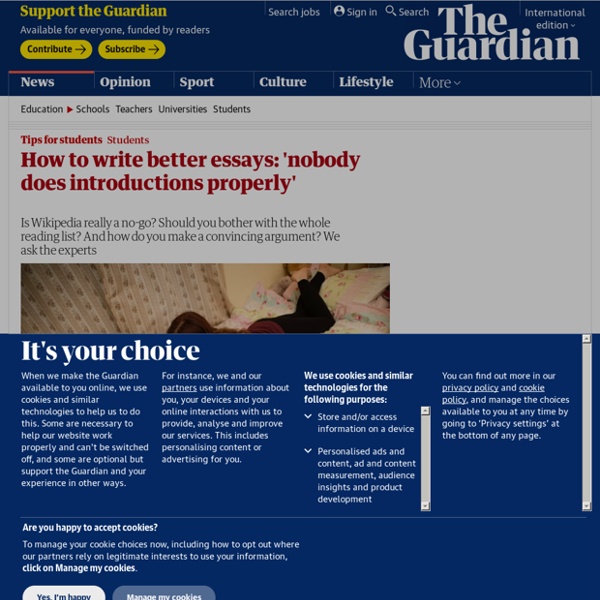Notes for students - Mel Thompson
Latest addition to this page... I have added an article, originally published in 'Dialogue', entitled 'Can Natural Law escape Aquinas?' to augment the notes on Natural Law for keen students and the general reader. To read it, click here.
Studying for exams? Here's how to make your memory work for you
Have you ever thought about how your brain works when you study? Knowing this may improve your ability to retain and recall information. There are three main memory structures: sensory, working and long-term memory. Using these tips, you can activate all three to enhance how you study.
20 Common Grammar Mistakes That (Almost) Everyone Makes
I’ve edited a monthly magazine for more than six years, and it’s a job that’s come with more frustration than reward. If there’s one thing I am grateful for — and it sure isn’t the pay — it’s that my work has allowed endless time to hone my craft to Louis Skolnick levels of grammar geekery. As someone who slings red ink for a living, let me tell you: grammar is an ultra-micro component in the larger picture; it lies somewhere in the final steps of the editing trail; and as such it’s an overrated quasi-irrelevancy in the creative process, perpetuated into importance primarily by bitter nerds who accumulate tweed jackets and crippling inferiority complexes.
The Tablet
Welcome to The Tablet's Student Zone, a resource for sixth-form and undergraduate students of Religious Studies and related subjects around the world, for their teachers, and for anyone else who would like to find out more about the "big questions" of life. Is there a God? Where did the universe come from? Is there a purpose to life? Do we all share a single human nature?
The Thinker Builder: Step In, Step Out: A Strategy for Thinking Deeply About Text
You're sitting at your guided reading table, your little group gathered around you, wide-eyed. Or are you the one who's wide-eyed? Sure, you know what you're doing, but maybe right now you're thinking your lesson plan doesn't fit the book like you thought it would. Or that maybe your lesson plan is just lame. Or maybe you don't have a lesson plan and are winging it (oh, come on, we've all been there). "Boy, I could really use a mini-lesson right now," you think.
15 Online Resources That Help Improve Essay-Writing Skills
Smart Classroom Technologies 15 Online Resources That Help Improve Essay-Writing Skills By Julie Petersen06/25/15 Throughout the journey from kindergarten to 12th grade, students are supposed to gain appropriate vocabulary and grammar skills that need to be successfully implemented into essay writing. Here are some effective online tools that can help you make the art of essay writing more attractive for your students. 1.
Condense & Expand – revision technique no. 2 – Sixth Form Savvy
First of All – Understand Before you start trying to learn stuff, make sure you understand it. It will make life a lot easier. I always liken this to a jigsaw puzzle. If you had to memorise a jigsaw puzzle and then go away and redraw it you wouldn’t learn each piece individually, it would be impossible (I’m talking 500 piece puzzle here).
Empathy in Leadership: Coaching Leaders to Manage Their Stories
When leaders struggle with staff morale or direct reports failing to thrive, a lack of empathy is the lead domino. These leaders forget that, as humans, we tend to make decisions based on our stories about other people. These stories impact our every interaction with others because we can’t hide the emotions behind them. Our stories also determine our broader management tactics, which can be as wildly off the mark as our stories themselves. Negative stories about others that we hold as leaders come from what Heath and Heath call the “Fundamental Attribution Error” (Switch, 2010). The simple idea: it is “our inclination to attribute people’s behavior to the way they are rather than the situation they are in” (180).
Essay Writing // Purdue Writing Lab
This page is brought to you by the OWL at Purdue University. When printing this page, you must include the entire legal notice. Copyright ©1995-2018 by The Writing Lab & The OWL at Purdue and Purdue University. All rights reserved.



